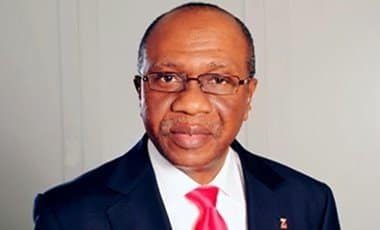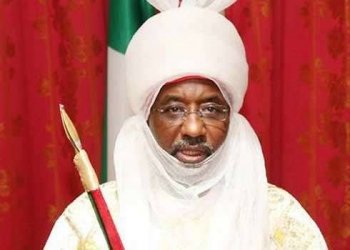CENTRAL Bank of Nigeria (CBN) on Tuesday announced that it is adopting a flexible foreign exchange rate regime in order to ease the pains of manufacturers especially who have to import machinery and raw materials for production.
However, the MPC voted to retain the extant monetary rates arrived at in the March meeting, while warning that the economy was headed for recession.
These were contained in the communiqué issued at the end of the committee’s two-day meeting held at the CBN headquarters in Abuja.
The communiqué, signed by Godwin Emefiele, CBN Governor, read in part, “The Committee, in its assessment of the relevant risk profiles, came to the conclusion that although, the balance of risks remains tilted against growth; previous decisions need time to crystalize.
“Consequently, in a period of stagflation, the policy options are very limited. To avoid complicating the conditions, the Committee decided on the least risky option to hold.
“The foreign exchange market framework, now ready, the MPC voted unanimously to adopt greater flexibility in exchange rate policy to restore the automatic adjustment properties of the exchange rate.
“Consequently, all 9 members voted to hold and introduce greater flexibility in managing the foreign exchange rate. The Bank would however, retain a small window for funding critical transactions. Details of operation of the market would be released by the Bank at an appropriate time.”
On baseline rates, MPC retained the Monetary Policy Rate (MPR) at 12.00 per cent; Cash Reserve Ratio (CRR) at 22.50 per cent; Liquidity Ratio at 30.00 per cent; and also retained the Asymmetric Window at +200 and -500 basis points around the MPR.
In arriving at those decisions, the Committee acknowledged the severely weakened macroeconomic environment, as reflected particularly in increased inflationary pressure, contraction in real output and rising unemployment.
While alerting the country to the possibility of the economy going into recession, CBN said, “The Committee recalls that in July 2015, it had hinted on the possibility of the economy falling into recession unless appropriate complementary measures were taken by the monetary and fiscal authorities. Unfortunately the delayed passage of the 2016 budget constrained the much desired fiscal stimulus, thus edging the economy towards contractionary output.”
It added, “With some of the conditions that led to the contraction in Q1, 2016 still largely unresolved, the weak outlook for growth which was signaled in July 2015 could extend to Q2.”
According to the CBN, the passage of the budget would not do much to stave off the recession because “the initial monetary injection approved by the Federal Government may not impact the economy soon, as the processes involved in MDAs finalizing procurement contracts before the disbursement of funds may further delay the much needed financial stimulus to restart growth.”
The MPC stated further, “As a stop-gap measure, the Central Bank continued to deploy all the instruments within its control in the hope of keeping the economy afloat. The actions, however, proved insufficient to fully avert the impending economic contraction. To this effect, today’s policy actions have to be predicated on a less optimistic outlook for the economy in the short term.”
The Committee noted that the CBN had implemented accommodative monetary policy from July 2015, with the hope of achieving growth, up until March 2016, when the MPC switched into a tightening mode.
“However, while the underlying conditions necessitating tight monetary policy remained largely in place, sundry administrative measures implemented by the Bank and recent macroeconomic conditions on the back of the 2016 Budget are expected to significantly dictate a key policy preference in the dilemma now faced by monetary policy-stagflation
“Given the current limited policy space, it is imperative to balance stability with growth stance while working on options that in the short term, are certain to isolate seasonal and transient factors fuelling the current price spiral,” the communiqué also stated.









